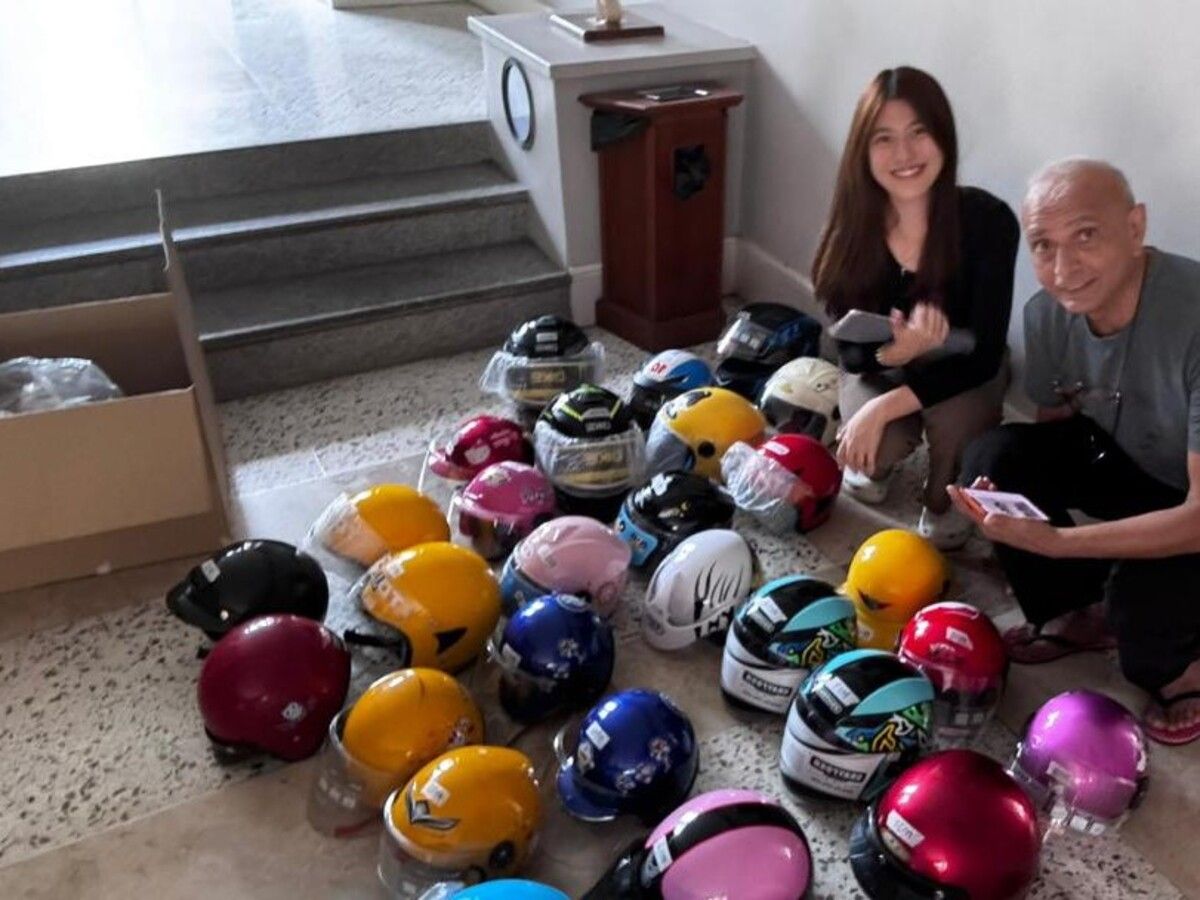Motorcycle and bicycle fatalities constitute nearly two-thirds of the roughly 6,000 road fatalities in Malaysia. The use of certified helmets is the single most effective strategy for the prevention of head injuries to motorcyclists and bicyclists.
In Malaysia, motorcycle helmet standards were first introduced in 1969 (MS 1:1969), and further enhanced in 1996 (MS1:1996). The government then accepted either standard for motorcycle helmets.
In 1996, the Malaysian Medical Association (MMA) and Road Safety Marshal Club of Malaysia (RSMC), as part of the Malaysian Helmet Initiatives (MHI) consortium, bought 25 adult motorcycle helmets from various retail outlets in the Klang Valley and sent them to SIRIM for MS1:1996 testing.
Of the 25 helmets tested, 18 failed the enhanced MS1:1996 standard. During the study, it was found that some manufacturers had used false SIRIM labels on the helmets.
The government then cancelled the licences of three manufacturers and insisted that thereafter, all motorcycle helmets should meet the enhanced MS1:1996 standard.
In 2005, the MMA and RSMC carried out a similar study investigating the quality of motorcycle helmets. The results showed that all 45 adult helmets passed the MS 1:1996 standard while only one out of five child motorcycle helmets passed the test. Subsequently, the government developed standards for children motorcycle helmets.
In 2023, the MMA and RSMC bought 20 child motorcycle helmets (10 from online stores and 10 from retail outlets in Penang and Kedah) and had them tested at SIRIM according to current motorcycle standards.
MIROS and SIRIM had recently proposed that the newly developed standard (MS 1-2:2023) be implemented. Hence, we bought a further 10 helmets from retail stores and had them tested to the proposed MS 1-2:2023 standard.
We also bought 21 child bicycle helmets (11 from retail outlets and 10 from online stores) and sent them to SIRIM for testing to the current MS 1763: 2004 pedal cycle helmet standard.
During the process of purchasing motorcycle and bicycle helmets, we noted the following:
- Retailers were generally aware of the standard requirements for child motorcycle helmets, but not for child bicycle helmets.
- Some retailers were unaware of the quality of the helmets they were selling.
- Some retailers verbally said that the helmets meet standards, but there were no labels on the helmets.
- Some of the helmets sold had a QC label implying that they meet the standards of the manufacturer.
- Majority of the bicycle helmets did not have a standard certification label.
- Some bicycle helmets had labels denoting foreign standards which were acceptable, such as USCPSC, EU standards, etc.
- Some of the helmets were labelled as ‘toys’.
- Some of the helmets were very flimsy to the touch.
- Of the 10 child motorcycle helmets bought from retail outlets, only five passed, while the other five failed the tests.
- Of the 10 child motorcycle helmets bought from online stores, only three passed, while the other seven failed the tests.
- Of the 10 additional child motorcycle helmets bought from retail outlets and tested to the proposed MS 1-2:2023 standard, only five passed, while the other five failed.
- Of the 11 child bicycle helmets bought from retail outlets, five passed, and six failed the MS 1763: 2004 standard.
- Of the 10 bicycle helmets bought from online stores, three passed, and seven failed the MS 1763: 2004 standard.
The names and brands of the helmets which passed and failed the tests have been submitted to SIRIM and are being kept confidential.
There still exists a significant proportion of child motorcycle and bicycle helmets sold by retail outlets and online stores which do not meet Malaysian standards.
The MMA and RSMC hereby jointly
- Urge the relevant authorities to take necessary action to ensure that all motorcycle and bicycle helmets which are available in retail outlets and online stores to the public meet Malaysian or international standards.
- Advise the public to exercise caution and make sure that they purchase motorcycle and bicycle helmets from retail outlets and online stores which meet Malaysian or international standards.
- Appeal to the media to publicise the findings of this study to increase public awareness of the need to use certified motorcycle and bicycle helmets in the interest of public safety.
The MMA’s Injury Prevention Committee and RSMC had initiated bicycle helmet programmes for schoolchildren in rural areas in late 2023, led by Prof Krishnan Rajam from AIMST University and assisted by several of his students.
During the review of bicycle helmets, it came to light that many helmet brands inretail stores and online stores do not meet SIRIM standards. We then decided to buy bicycle and motorcycle helmets from online stores and retail outlets and send them to SIRIM for testing.
The results of testing were discussed with SIRIM and the Ministry of Domestic Trade and Cost of Living officials on February 9, 2024. The following were decided at the meeting:
- MMA and RSMC will issue a joint press release on the findings of the study.
- The ministry will invite MMA to present the findings to the management group in May 2024 in order to discuss further steps towards protection of the public against uncertified helmets.
This report was prepared by the Malaysian Medical Association’s Injury Prevention Committee, Captain K Balasupramaniam and his team from the Road Safety Marshall Club of Malaysia, and Prof Krishnan Rajam and his students from AIMST University.
- This is the personal opinion of the writer or publication and does not necessarily represent the views of CodeBlue.





